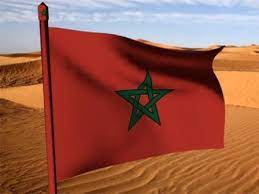
Several former Heads of Government, ex- ministers and MPs have sent a letter to U.S. President Joe Biden expressing support to the American decision recognizing Morocco’s full sovereignty over its entire Sahara territory, affirming that the Moroccan autonomy initiative is the only lasting solution to this artificial conflict.
In a letter sent to Biden, 250 international eminent personalities said the Morocco-proposed autonomy plan for the Sahara is the only lasting solution to this regional conflict.
The Moroccan autonomy plan is “the only way to end the suffering of the people living in the Tindouf camps in Algeria, to ensure reconciliation, and achieve permanent peace and stability in a strategic region, by creating a real vector of peace, stability and prosperity in Africa and even in the world”, they underlined.
The signatories, who represent various political trends, also voiced concern over an indefinite extension of the status quo which could have allowed acts of terror to be carried out by armed militias in a highly strategic area, and key to the stability of the African continent and the Euro-Mediterranean basin.
They likewise applauded the outstanding socioeconomic development in the Sahara, saying the progress has been accomplished thanks to the $8 billion new development plan launched in 2015 by King Mohammed VI to speed up the development of the Saharan Provinces.
This development has been made hand in hand with thriving local democratic governance. In 2015, the two regions of the Sahara recorded the highest turnout in the first regional elections held in Moroccan history, said the signatories.
Today, Sahrawis, including a former “polisario” official, chair the two regional councils in the region through internationally recognized free and transparent elections, taking them the only legitimate representatives of the region’s population, they added, noting that these elected officials propose, vote and implement, in contract with the State, development projects of their regions.
This inclusive management is a prelude to what the autonomy plan would offer under Moroccan sovereignty, with the creation of regional legislative, executive and judicial bodies, explained the foreign political leaders in their letter.
“It is not a coincidence that a growing number of nations, including the United States, support the Autonomy plan as a realistic, practicable and lasting political solution based on the compromise,” they said, affirming that the last UN 27 resolutions of the Security Council support this solution.
Several UN envoys have said that “the independence of the Sahara is not a realistic option” and today, the UN Security Council, with the participation of the United States, views the Moroccan autonomy plan for the Sahara as a “serious and credible” basis for a political solution, underlined the signatories.
The U.S. has joined 20 other countries in opening consular representations in the Sahara, in the cities of Laayoune and Dakhla. The move not only recognizes Morocco’s sovereignty over the Saharan provinces, but also Morocco’s role as a historic link between Europe and Africa and as a regional economic pole carrying many opportunities for investors from all over the world and prospects for future, knowledge and employment for the youth of the African continent, affirmed the signatories.
They also welcomed the trilateral deal signed between Morocco, Israel and the United States, which will strengthen peace in the Middle East, in accordance with the historic role that Morocco has played in advancing peace in the Middle East.
The 250 political personalities who signed the letter sent to U.S. President are from Argentina, Armenia, Belgium, Bulgaria, Canada, Chile, Colombia, Denmark, Dominican Republic, Czech Republic, El Salvador, Estonia, Finland, France, Greece, Guatemala, Honduras, Hungary, Ireland, Italy, Paraguay, Peru, Saint Lucia, Serbia, Spain…
The list of signatories also include former Czech President Vaclav Klaus, former Guatemalan President Jimmy Morales Cabrera, former Bulgarian PM Georgy Bliznachki, former MINURSO member Stephan Todorov Davidov as well as several current MPs and senators.
